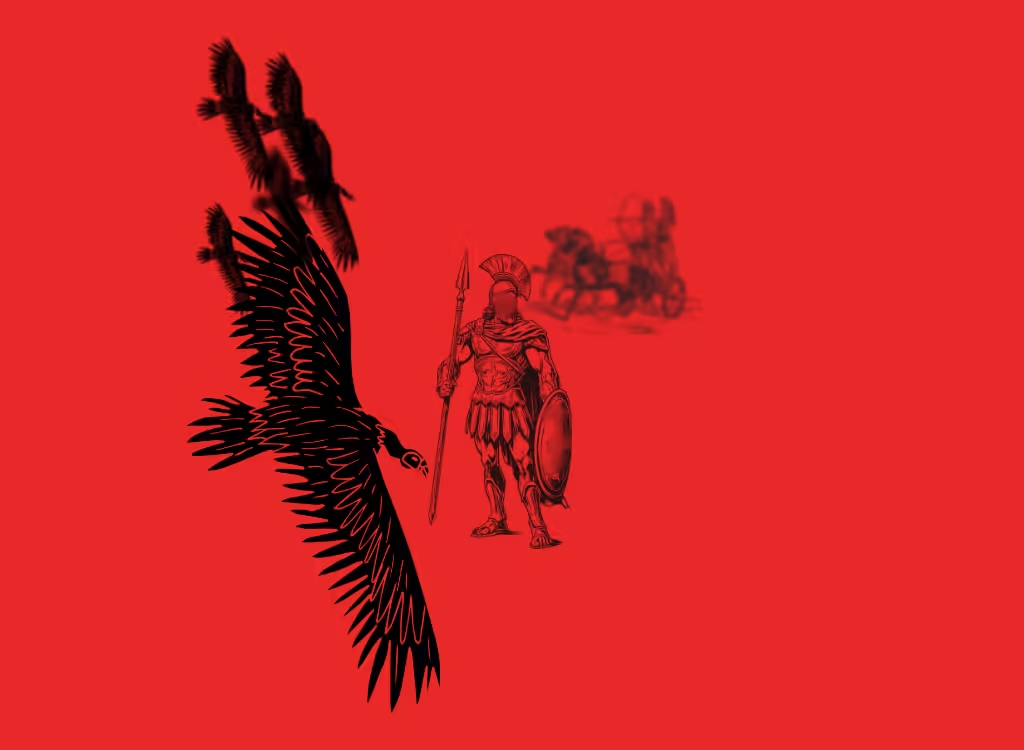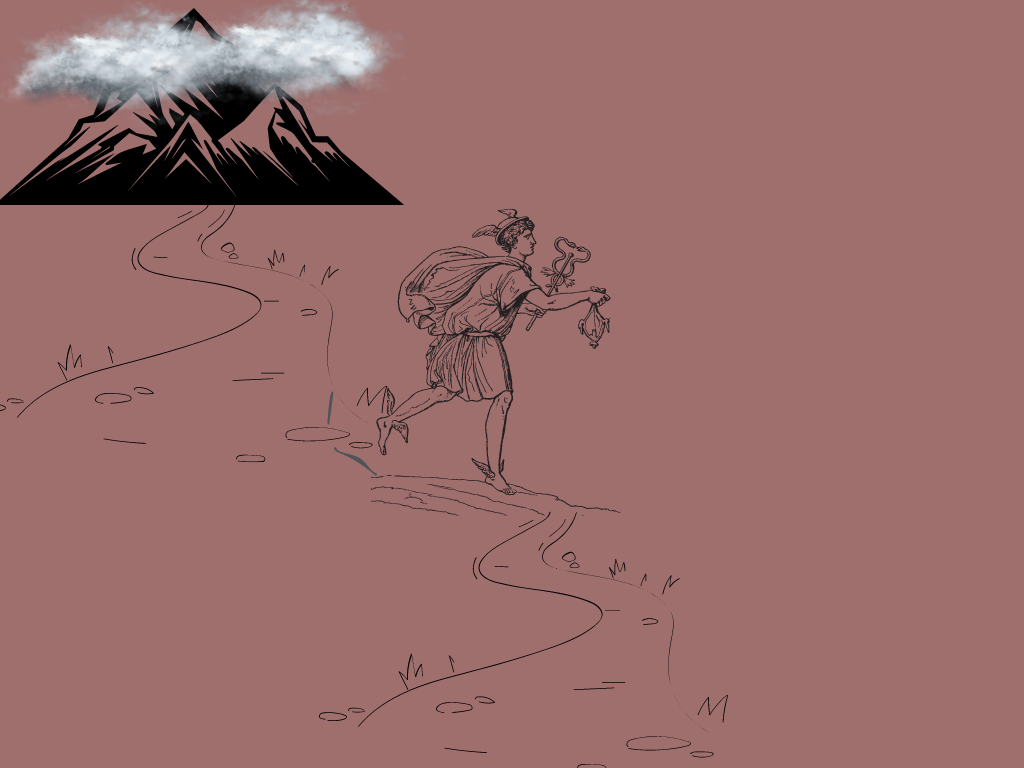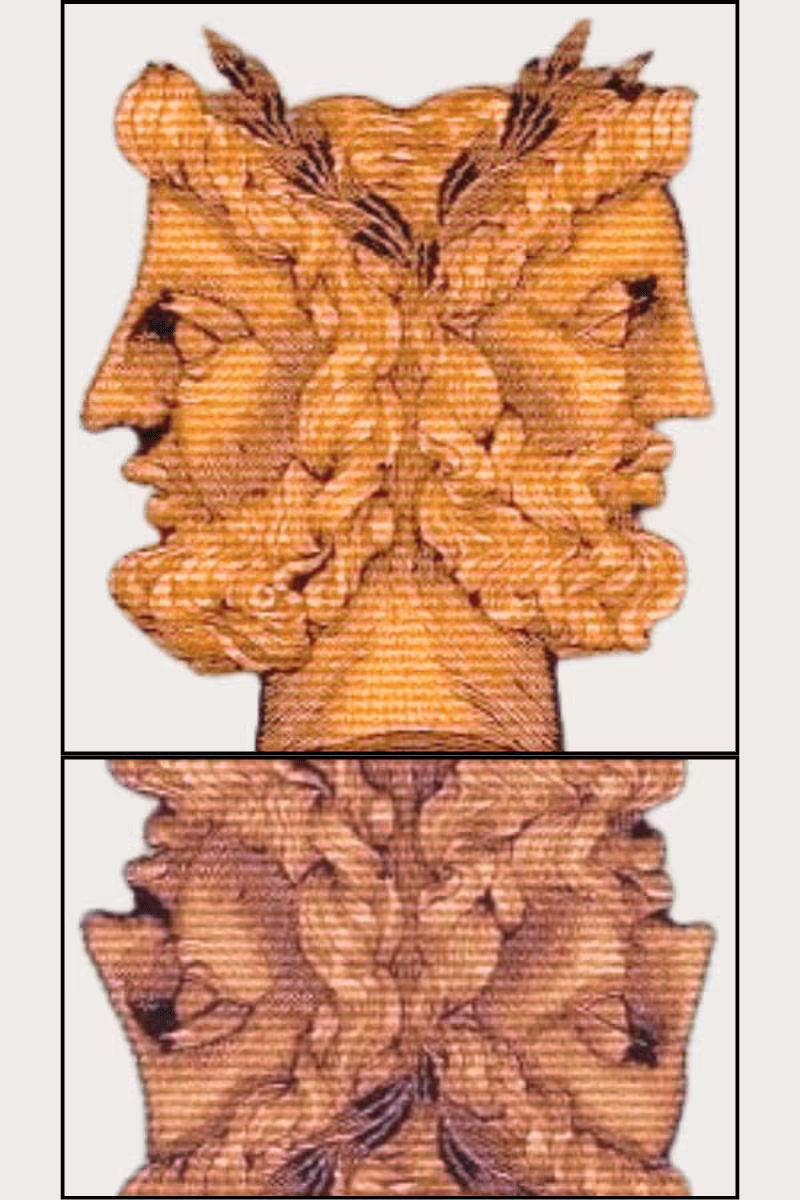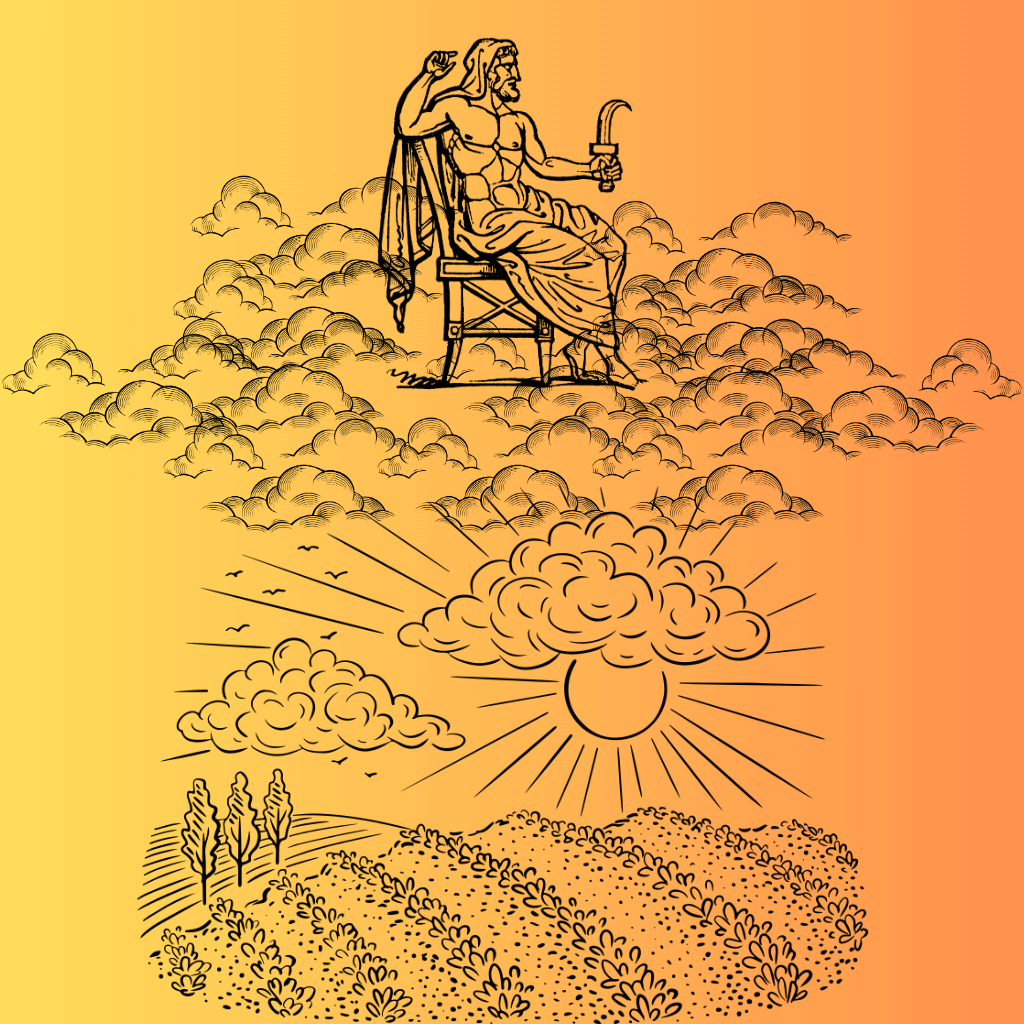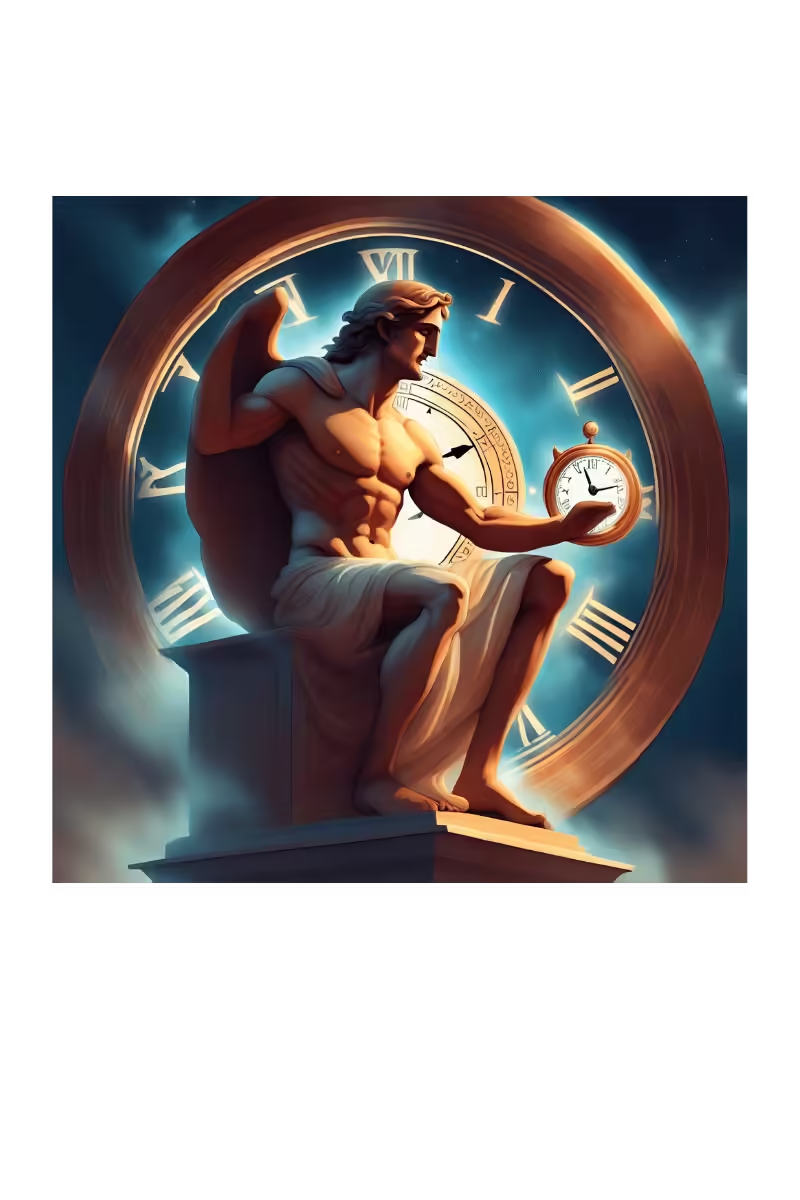
TITAN CRONUS – God of Time in Greek Mythology
Cronus, a Titan in Greek Mythology, is the son of the Earth goddess Gaia and the Sky god Uranus. He represents eternal time and infinity, serving as the god of time in Greek mythology.
As a matter of fact, it is seen that the Titan Cronus, the father of Zeus, has been attributed the meaning and characteristics of the word “chronos”, which means time, or Chronos, a primitive god mentioned especially in Orphic cosmogony, perhaps because of the confusion due to similarities over time, or perhaps consciously.
Within the rich pantheon of Greek mythology, there exists a series of divine beings, including gods and titans. These epic stories encompass various myths, from the creation of the universe to the power struggles among the gods. Cronus stands as a significant figure at the center of this mythological world.
The Titan Origin of Cronus: Who is Titan Cronus?
Born as the son of Uranus (Sky) and Gaia (Earth), God Cronus belonged to the powerful entities among gods and goddesses known as Titans. Alongside siblings such as Oceanos, Hyperion, Ceos, and other Titans, they represented the fundamental forces of the universe.
Cronus later married his sister Rhea, who was also one of the 12 Titans like him.
Children of Cronus and Rhea
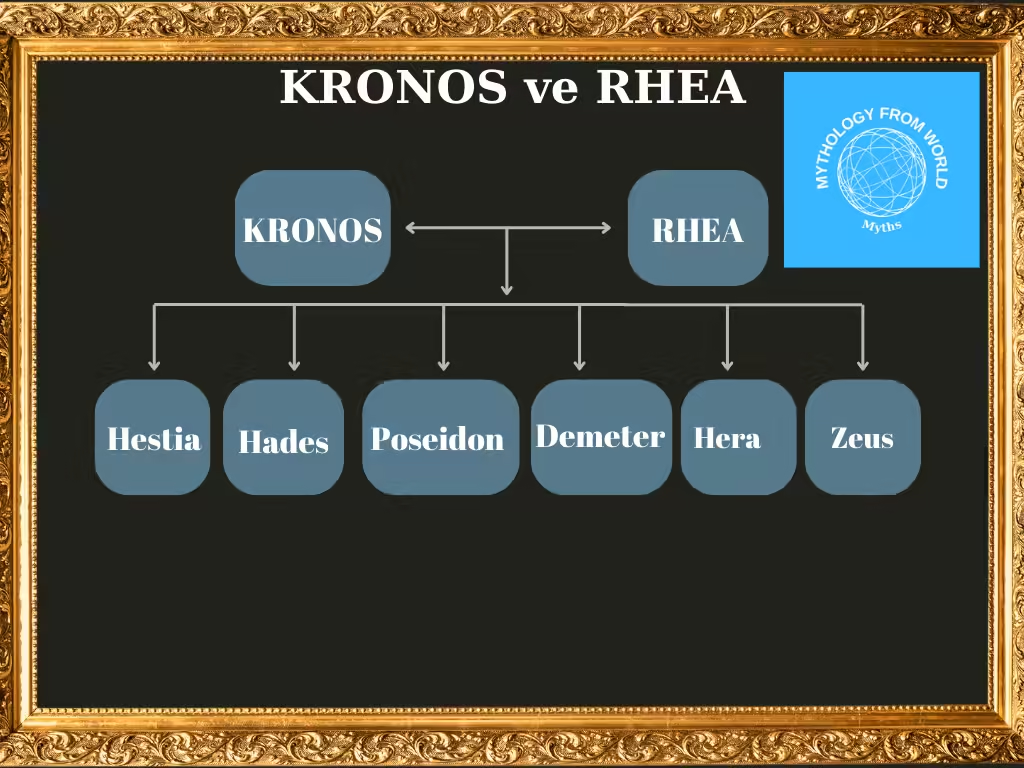
The Fall of Uranus: A Myth
Cronus’ father, Uranus, had a strong desire to rule the universe, holding it in higher regard than anything else. He saw anyone or anything that could potentially take away this power as a threat, including his own children. Due to his fear of losing his eternal dominance and power, Uranus imprisoned Hecatoncheires (the Hundred-Handed Ones) and Cyclopes, his first children from Gaia, in Tartarus.
(What are the Hecatoncheires?)
Later, with the birth of the 12 Titans he decided to prevent their – possible – uprising by attempting to thwart their births, unlike imprisoning them as he did before.
Children of Uranus and Gaia
Enduring both the pain caused by Uranus’ actions and resentment for the injustice toward his children, Gaia devised a plan to stop this cycle. She crafted a sharp sickle and urged her children to rise against Uranus, rebel against their father, and execute the plan. The Titans did not respond positively to this call. Cronus, the youngest son, was the only one to accept the proposal. Armed with the sickle made by Gaia, he adhered to the plan, cutting off his father’s genitalia and casting them into the sea.
This myth holds significance in Greek mythology, as it is believed to have led to the birth of gods, goddesses, and other life forms. From Uranus’ fallen organ into the sea, Nymphs and Furies were born. Some narratives also associate this event with the birth of Aphrodite.
Titan Cronus As a Ruler:
After overthrowing his father Uranus, he released the Cyclopes and Hundred-Handed Ones, taking his father’s place as the ruler. He married his sister Rhea, marking the beginning of the Golden Age.
Despite his rebellion against his father’s tyranny, he mirrored Uranus in many ways. The prophecy about his own children’s overthrow haunted him. According to the prophecy, one of his offspring would depose him and take his place. Fearing a similar fate, he decided to follow in his father’s footsteps and prevent his children from usurping him. However, instead of imprisoning them like Uranus, Cronus chose to devour each child at birth, believing that this would spare him Rhea’s wrath and suffering, similar to Gaia. He continued this practice until the birth of his last child, Zeus, whom Rhea managed to conceal.
Children of Gaia and Uranus / The 12 Titans
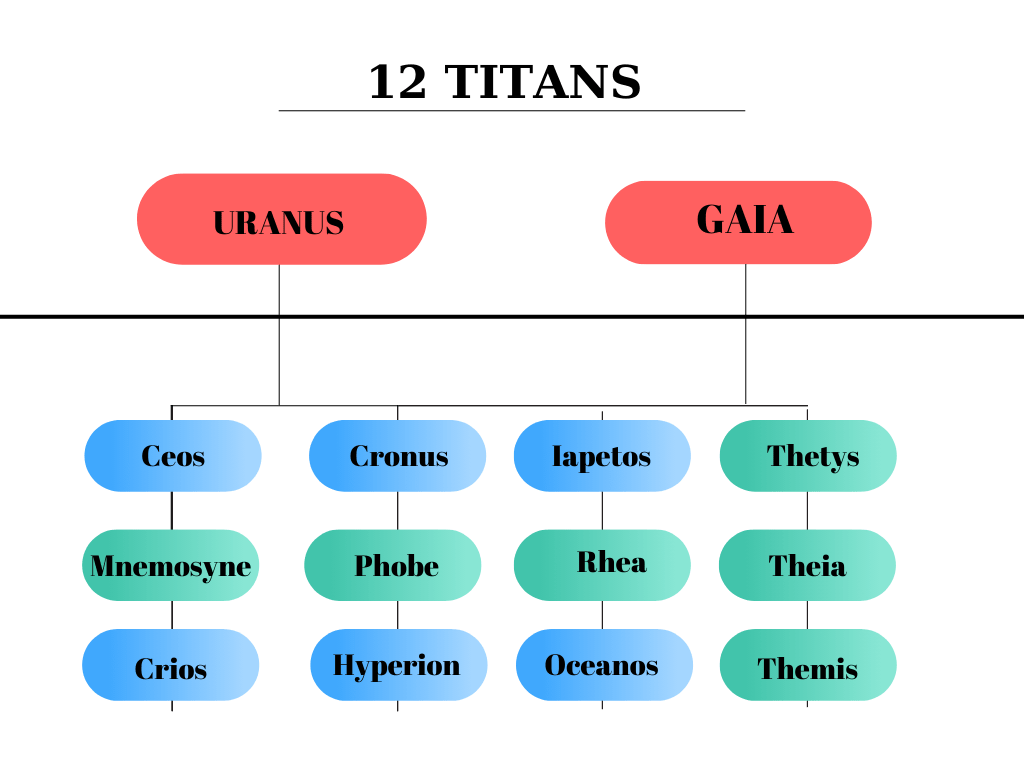
The Fall of Cronus
As Zeus grew older, he planned to rebel against his father. Initially, Zeus tricked his father into drinking a potion received from Metis, causing him to vomit up his siblings: Hestia, Demeter, Poseidon, Hades, and Hera. Forming alliances, Zeus waged war against his father and some of the Titans. While Zeus secured the support of his siblings and formed alliances with other powers, Zeus’ father struggled to find allies. After a decade-long war, Zeus emerged victorious, replacing his father as the ruler and marking the beginning of the era of the Olympian Gods.
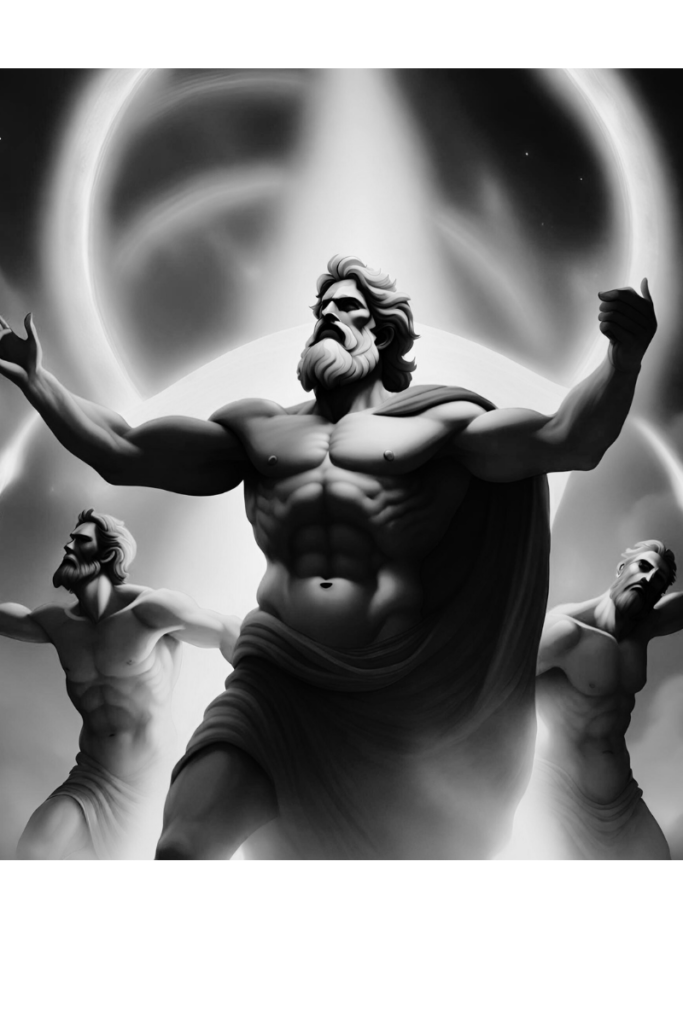
Imprisonment of Cronus
Cronus’ defeat resulted in his imprisonment. Zeus, in establishing divine order, incarcerated some of the Titans who supported his father, along with his father’s army, in the deep underground prison called Tartarus. Zeus’ father, sent to the deepest regions of Tartarus, was left alone with the memory of the ancient order among gods and Titans.
The story of Titan Cronus is a fundamental element of Greek mythology, shedding light on the power balances and transformations within the rule of the gods. As a symbol of the universe and time( or by loading on this icon), he remains a significant part of mythological tradition, continuing to influence our understanding of these ancient narratives.
Another Child of Cronus: Centaur Kheiron (Chiron)
Although the names of Cronus and Centaur Chiron ( Centaur Kheiron) are not mentioned together after his birth and in other Greek myths and the father-son relationship is not mentioned, according to some sources, Centaur Chiron is the son of Titan Cronus and Nymphe Philyra.
According to the story, Cronus takes the form of a horse and becomes together with Philyra in order to overcome Rhea. Kheiron (Chiron) is born from this union. Kheiron’s filling in the form of a centaur , that is, half horse and half man, is the form his father took during the union.
There are basic features that distinguish Kheiron (Chiron) from other centaurs. First of all, since he was born from two divine beings, he is immortal unlike other centaurs. Again, unlike the others, he is not wild and aggressive, but calm and wise.
Indeed, as a character, Kheiron is one of the wisest, most intelligent and calmest characters in ancient Greek Mythology.
Centaur Chiron ( Kheiron ) was mostly raised by the god Apollo and the goddess Artemis. Later, he was regarded as a great teacher and counsellor in Greek mythology and ancient Greece. He was the teacher and mentor of Achilles, Jason and many other heroes.
The Alternate Ending of Cronus
In Greek mythology and myths, Cronus reigns, overthrowing his father Uranus and ushering in the Golden Age, before being deposed by his son Zeus and imprisoned in Tartaros.
In Orphism, however, a different and alternative ending is defined for Cronus.
Orphism is a mystical and mysterious esoteric teaching in ancient Greek religion. It is named after Orpheus. Orphism includes a set of religious beliefs and practices and is a doctrine that at times goes beyond the main line and narrative of Greek Mythology. Orphism (Orpheusianism) often centres on the immortality of the soul and the possibility of a blessed afterlife.
In some Orphist narratives, it is told that Titan Cronus was not imprisoned in Tartaros forever after Zeus’ war against him and the Titans, that is, after the Titanomachy, but was released by Zeus after a while.
According to this little known narrative, Zeus, after releasing his father Cronus from prison, put him in charge of the Island of the Blessed (the Lucky Isles).
Isles of the Blessed are a place believed to be outside the known lands near the western borders of the world, where in Greek Mythology there is a heavenly life after death. For this reason, these islands were thought to be a place where proper and heroic souls would find peace after death.
The fact that Cronus is the ruler of these islands and the heroic souls who arrive here can actually be considered as a kind of re-glorification of Cronus after his fall. It is like the Titan Cronus, who was a tyrant in life, turning into a respected ruler after his death.
Of course, it should not be overlooked the things that this transformation represents and symbolises. This myth can be interpreted as the reconciliation of the old order and the new order, that is, the Titans and the Olympians, or the preservation of the old gods in the cosmic order. While making all these inferences, it should be kept in mind that although Cronus was a tyrant and mistreated his children, the Golden Age was experienced during his reign.
